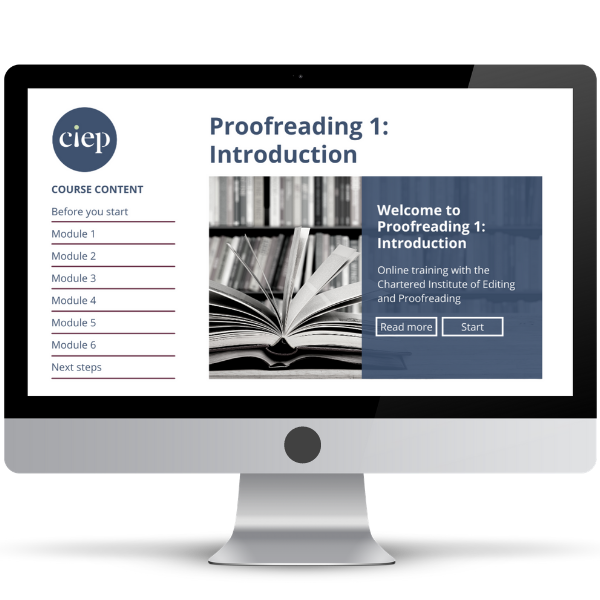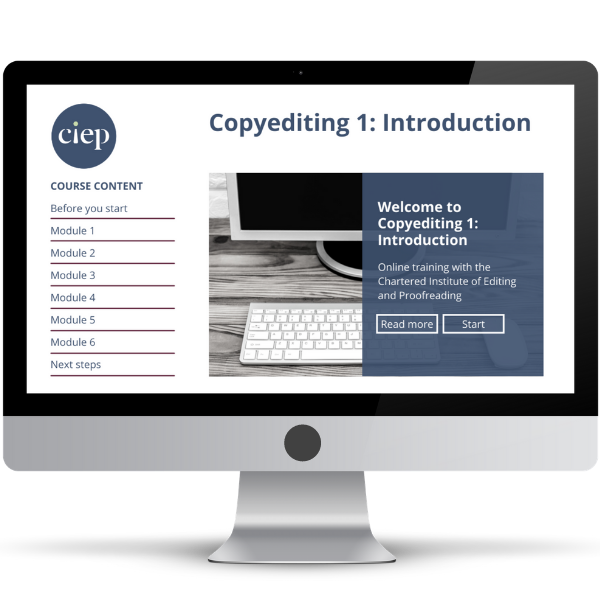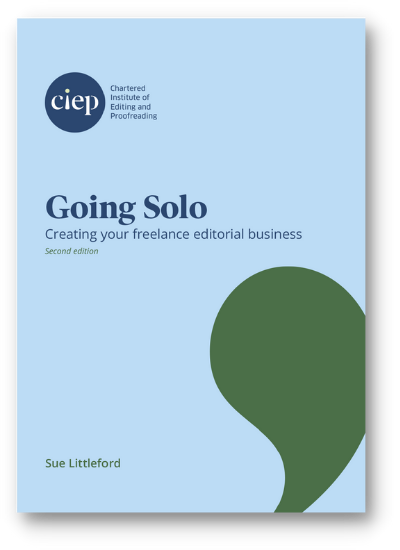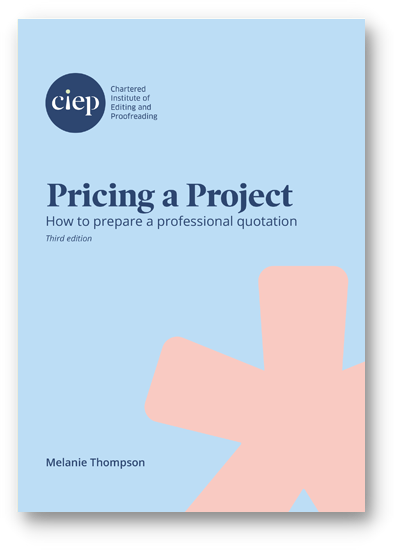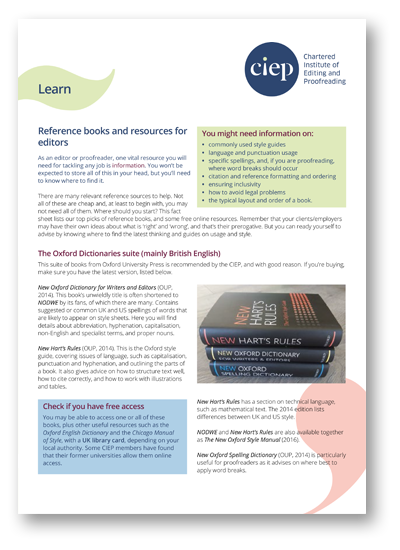Working as a proofreader or editor
Find out what skills and knowledge you need to become a professional editor or proofreader.
How do I become a proofreader or editor?
If you’re good with punctuation, spelling and grammar and have a keen eye for mistakes in writing, that’s a great start! But it’s only the beginning.
To work as a professional proofreader or editor you also need the following skills and knowhow:
- up-to-date core skills training
- a willingness to keep learning and updating your skills and knowledge
- good general knowledge
- a wide vocabulary
- the ability to express ideas concisely
- tact, discipline and communication skills
- reliability and efficiency to work to tight budgets and deadlines.
You also need to be pragmatic. If there isn’t the time or budget to do a ‘perfect’ job, you need to know how to make sure it’s professionally good enough, and to be happy to leave it at that.
Plus, editing and proofreading aren’t about imposing your own rules, voice or way of writing. If you disagree with your author’s decisions on style or content, you’ll need to respect their wishes and do your best for them anyway.
How do I qualify to be an editor or proofreader?
Which training is best?
Foundational training
Initial foundational training is essential because it teaches you:
- the skills you need as a professional
- the confidence to know when to make a change and when to leave well alone
- the best and most efficient industry-standard practices.
Continuing professional development
Professional proofreaders and copyeditors should continue to update their skills and knowledge because:
- technology moves on
- conventions change
- language evolves.
CPD provides you with the flexibility and confidence to expand your business or career.
What will be expected of me?
Start with the CIEP’s Professional Practice Code. This is a good guide to what we expect from professional proofreaders and copyeditors.
Then check out the Curriculum for Professional Development. There, you’ll find a full list of the skills and knowhow you might need throughout your working life.
CIEP members can find additional support in the member forums and our knowledge hub.
Should I be self-employed or an employee?
Being a freelancer
If you intend to work freelance, you’ll need to set up a business, meaning you’ll be self-employed.
Fees paid for freelance work vary enormously. There is no universal going rate. Clients in some sectors will pay less than others, and even within sectors there are variances.
As a business owner, you’re responsible for setting your fees according to what you need to earn. That could mean regular marketing so that you find the right clients for you.
Getting a job in publishing or communications
If you’d prefer to be an employee rather than going solo – such as working for a publisher or communications department – you’ll still need training and experience (or to be willing to learn).
You’ll probably also need some contacts to get your foot in the door because it’s competitive.
In-house salaries in traditional publishers tend to be low if you’re just starting out. You might find better-paid positions within large businesses or organisations with a publishing department.
Will I make a living from proofreading or editing?
You can make a living from proofreading and editing, and many people do. But many also struggle, and it’s not a quick-fix solution to earn money working from home.
Being good with words is a good place to start but doesn’t mean you’re ready to do a professional editing job. You’ll need to learn industry-standard skills to be sure you’re fit for purpose.
You’ll also need a professional business head if you’re working for yourself because, in addition to editing, you’ll also be in charge of your finances, tax, marketing, networking, and all the other aspects of running a business.
Suggested minimum rates
To help you with pricing negotiations, we’ve created suggested minimum rates for editing tasks. These are starting points, not recommended rates.
Some clients won’t have the budget to pay these rates. Others will happily pay much more.
How do I get started?
Read these two handy guides for more advice on running a professional editorial business.
Recommended reference resources
We’ve created resources on many of these topics – check out our guides and fact sheets.

